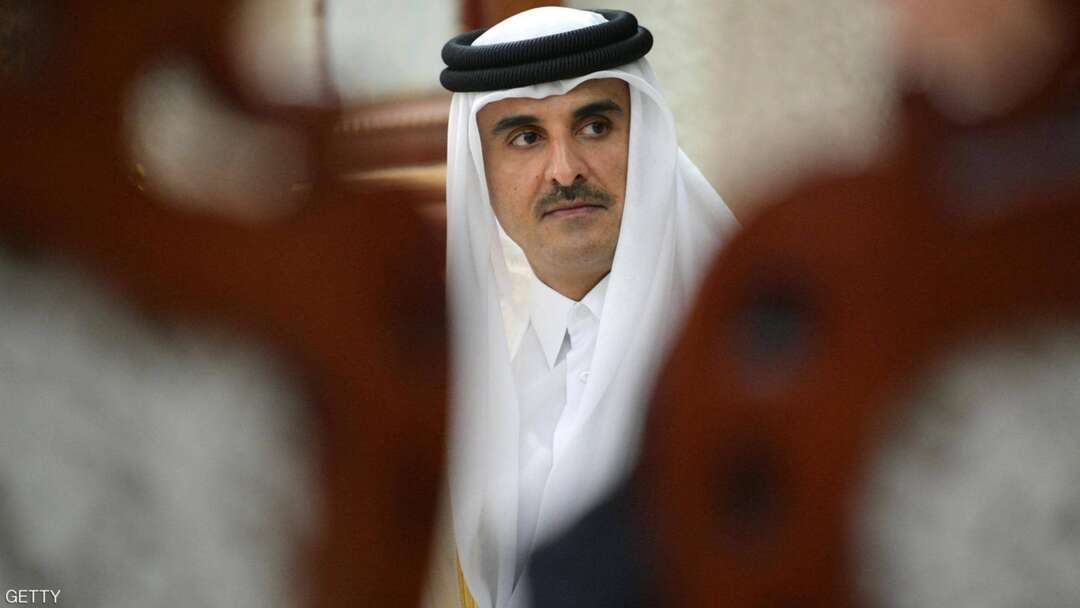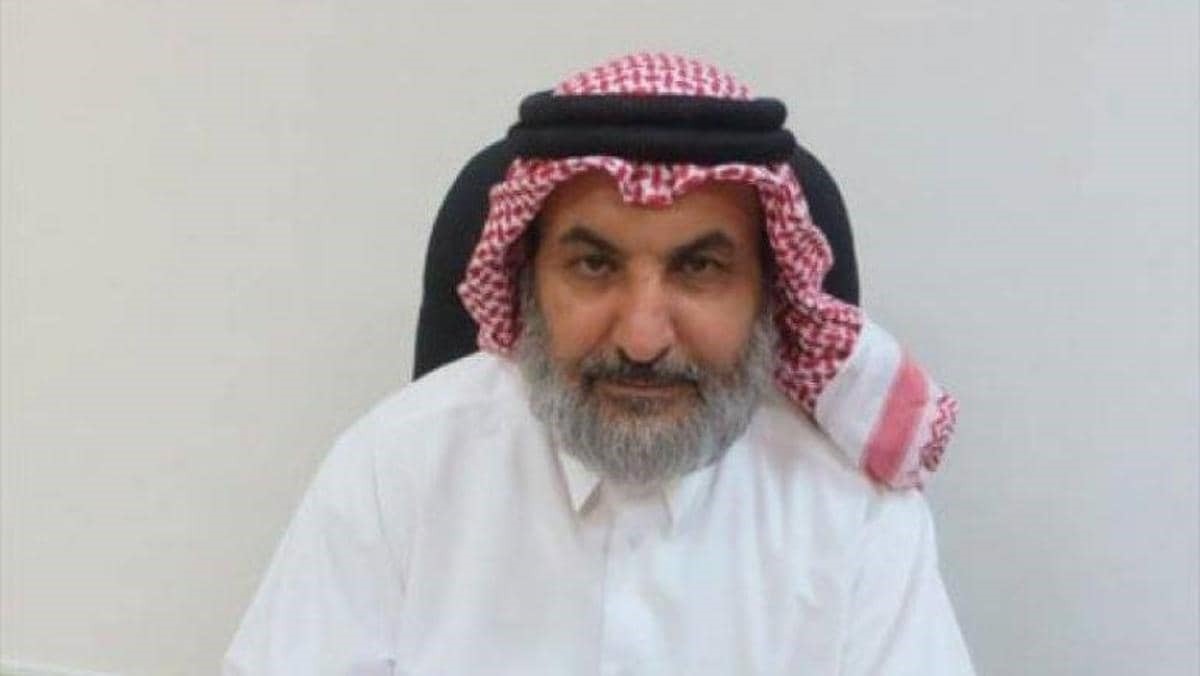-
Sanctions loopholes bring Qatar's terror triangle back to the fore

Qatar has returned to the forefront of global debate as a haven for wanted and listed terrorists on the international terror lists after reporting exploitation of legal loopholes to finance terrorists. Three men on the top of the list have found salvation and protection in Doha away from the public international law.
According to documents published by the Wall Street Journal, blacklisted terrorists are still able to access their frozen accounts due to loopholes in sanctions
UN records show that the Security Council granted blacklisted individuals access to their accounts in 71 out of 72 requests between 2008 and 2018.
The UN blacklisted terrorist groups members or supporters are not supposed to have access to any form of funding to ensure they can not support or launch additional attacks.
In order to allow these individuals pay basic living expenses, their countries of origin should apply for exemptions from the UN to grant restricted access to small amounts of money on a detailed budget request, to pay for food, dwelling and other necessities.
 Khalifa al-Subaie
Khalifa al-SubaieKhalifa al-Subaie
Khalifa al-Subaie is one of the most prominent beneficiaries of the sanctions loopholes adopted by the UN Security Council. He is one of the most influential financiers of terrorism in the region, whose name is linked to Khalid Sheikh Mohammed, the mastermind of the September 11 attacks and al-Nusra Front also known as al-Qaeda in Syria or the Levant.
Qatar and Qatar National Bank (QNB) have manipulated the loopholes to allow al-Subaie receive 10,000 $ per month without the Security Council's approval.
Al-Subaie has been listed on the international terrorism list since 2008, among al-Qaeda supporters and financiers.
Washington accuses him of being "al-Qaeda's first man in Qatar" supporting the leaders of the terrorist organization including Khalid Sheikh Mohammed, the mastermind of the September 11 attacks.
Qatar had detained al-Subaie for 6 months and released him, ignoring all international and US demands to interrogate him.
In 2012, al-Subaie was implicated in sending funds to al-Qaeda in Pakistan. He also raised funds in 2013 to support al-Nusra in Syria and one of al-Qaeda leaders, Abdullah al-Muhaiseni.
In 2017, Saudi Arabia, the United Arab Emirates, Egypt and Bahrain blacklisted al-Subaie among other 59 terrorists, while Doha keeps ignoring international demands to interrogate him.
 Mubarak al-Ajji
Mubarak al-AjjiMubarak al-Ajji
Al-Subai is not the only one enjoying Qatar's protection. Another listed terrorist named Mubarak al-Ajji is a lucid example of Doha's paradoxical policies.
Qatar has been forced to include al-Ajji on terrorist lists under extreme international pressure. However, controversy aroused when Doha honoured al-Ajji for being a Marathon runner.
Al-Ajji has been blacklisted for years by the United States and was listed as well by Saudi Arabia, Egypt, the United Arab Emirates and Bahrain in summer 2017 on the list of terrorism, yet he is still enjoying the protection of Doha's regime.
This duality indicates that the measures Doha has pledged to Washington to take against the terrorists harboured by Qatar are merely a dead letter.
 Abdul Rahman al-Nuaimi
Abdul Rahman al-NuaimiAbdul Rahman al-Nuaimi
Abdul Rahman al-Nuaimi, another terrorist, who is supposedly on the list of international sanctions and Qatari terrorism, has returned to Qatar's spotlight.
The man is still twittering to promote Alkarama organisation, which is accused of financing terrorist groups. Two-year old photos also showed some Qatari officials attending and celebrating his son's wedding.
United States Department of the Treasury has revealed the funding of al-Nuaimi to terrorist groups, including al-Qaeda in a number of countries such as Syria, Iraq, Yemen as well as the Somali Youth Movement.
The British government has also included al-Nuaimi on the list of sanctions, having been suspected of financing extremist groups. His assets were frozen in Britain and any bank with branches in Britain has been prohibited from providing him with any services. Furthermore, al-Nuaimi is blacklisted on the Arabian Quartet Counterterrorism list of terrorists.
Absence of a mechanism of sanctions enforcement
Some UN officials declare that Member States do not monitor blacklisted terrorists who sufficiently live within their borders and fail to prevent these individuals from obtaining funding.
In contrast, the exemptions procedure is largely regulated and lacks censorship where unjustified and undisciplined large amounts of money are granted to anyone who requests. Besides there are no spending checks.
The expert at the Near East Center for Strategic Studies, David Deroche, considers transferring government funds to terrorist groups is a disgrace and awful embarrassment to Qatar.
"We are talking about the millions of dollars that went to al- Qaeda and certainly the international community has to take extreme measure; for instance, establishing a body to monitor the implementation of punitive actions," Deroche commented. "Countries such as the United States should focus on such issues," he added.
According to Ahmed Pan, expert on counterterrorism, "Even though the United Nations launched a strategy to combat the financing of terrorism in 2006 and addressed various countries to seriously be committed to it, some countries have totally ignored the instructions, including Qatar, which unfortunately has assigned someone on the terrorism list like al-Subaie in the Anti-Money Laundering Committee in Doha."
Tags
You May Also Like
Popular Posts
Caricature
BENEFIT Sponsors BuildHer...
- April 23, 2025
BENEFIT, the Kingdom’s innovator and leading company in Fintech and electronic financial transactions service, has sponsored the BuildHer CityHack 2025 Hackathon, a two-day event spearheaded by the College of Engineering and Technology at the Royal University for Women (RUW).
Aimed at secondary school students, the event brought together a distinguished group of academic professionals and technology experts to mentor and inspire young participants.
More than 100 high school students from across the Kingdom of Bahrain took part in the hackathon, which featured an intensive programme of training workshops and hands-on sessions. These activities were tailored to enhance participants’ critical thinking, collaborative problem-solving, and team-building capabilities, while also encouraging the development of practical and sustainable solutions to contemporary challenges using modern technological tools.
BENEFIT’s Chief Executive Mr. Abdulwahed AlJanahi, commented: “Our support for this educational hackathon reflects our long-term strategic vision to nurture the talents of emerging national youth and empower the next generation of accomplished female leaders in technology. By fostering creativity and innovation, we aim to contribute meaningfully to Bahrain’s comprehensive development goals and align with the aspirations outlined in the Kingdom’s Vision 2030—an ambition in which BENEFIT plays a central role.”
Professor Riyadh Yousif Hamzah, President of the Royal University for Women, commented: “This initiative reflects our commitment to advancing women in STEM fields. We're cultivating a generation of creative, solution-driven female leaders who will drive national development. Our partnership with BENEFIT exemplifies the powerful synergy between academia and private sector in supporting educational innovation.”
Hanan Abdulla Hasan, Senior Manager, PR & Communication at BENEFIT, said: “We are honoured to collaborate with RUW in supporting this remarkable technology-focused event. It highlights our commitment to social responsibility, and our ongoing efforts to enhance the digital and innovation capabilities of young Bahraini women and foster their ability to harness technological tools in the service of a smarter, more sustainable future.”
For his part, Dr. Humam ElAgha, Acting Dean of the College of Engineering and Technology at the University, said: “BuildHer CityHack 2025 embodies our hands-on approach to education. By tackling real-world problems through creative thinking and sustainable solutions, we're preparing women to thrive in the knowledge economy – a cornerstone of the University's vision.”
opinion
Report
ads
Newsletter
Subscribe to our mailing list to get the new updates!






















